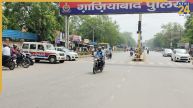As the persistently severe air quality in Delhi-NCR raises grave concerns, experts are sounding the alarm about the detrimental effects on unborn children and declaring a significant public health crisis.
Dr Arvind Kumar, a senior lung specialist at Medanta Hospital, emphasizes that air pollution knows no age boundaries and dismisses air purifiers as a sole remedy. He explains, “Air pollution affects people of all ages. Even unborn children are not spared from its impact because, when an expectant mother breathes, the toxins enter her lungs, circulate in her blood, and ultimately reach the developing fetus, leading to adverse effects,” as cited by ANI’s report.
He goes on to highlight that when these children are born, they inherit the same compromised air quality. With Delhi’s Air Quality Index hovering around 450-500, equivalent to the damage caused by smoking 25-30 cigarettes, these infants are at risk of various respiratory issues.
Addressing the question of whether air purifiers can effectively combat air pollution, Dr Kumar firmly asserts that they are not a comprehensive solution. He clarifies, “Air pollution is a public issue, while air purifiers offer personal relief. If the external air quality index (AQI) stands at 500, no air purifier can reduce it to 15 or 20. Even if it manages to do so, its filters would become saturated quickly, necessitating frequent replacements within one to two weeks. Failure to do so would significantly diminish its efficacy.”
Dr. Kumar also underscores the link between air pollution and childhood obesity, in addition to exacerbating asthma. He notes, “Air pollution affects every organ in the body, and there is substantial evidence indicating a connection to obesity and asthma. The combination of obesity and air pollution significantly elevates the risk of asthma, as demonstrated in a study by the Lung Care Foundation. In our own study of 1,100 children in Delhi, we found that one in three children suffered from asthma, and this figure increased when obesity was a factor.”
The specialist further mentions that prolonged exposure to pollution is associated with an increased likelihood of chronic diseases and disabilities.
Citing recent research, he points out, “A study from Europe just three days ago revealed a higher incidence of breast cancer among populations exposed to air pollution. Air pollution leads to a multitude of diseases and disabilities, resulting in millions of premature deaths. Data from the University of Chicago indicates that, on average, each resident in Northern India loses about 9-10 years of their life due to the levels of air pollution. In summary, we are facing a massive health emergency.”
Meanwhile, as the air quality in Delhi remains in the ‘Severe’ category for the fourth consecutive day, with a slight reduction in the Air Quality Index (AQI) recorded at 410 compared to 504 on Saturday, the crisis continues to loom large, demanding urgent and comprehensive measures to protect public health.
Also Read: Big News! Aircraft Manufacturing Industry To Take Off Near Jewar Airport













